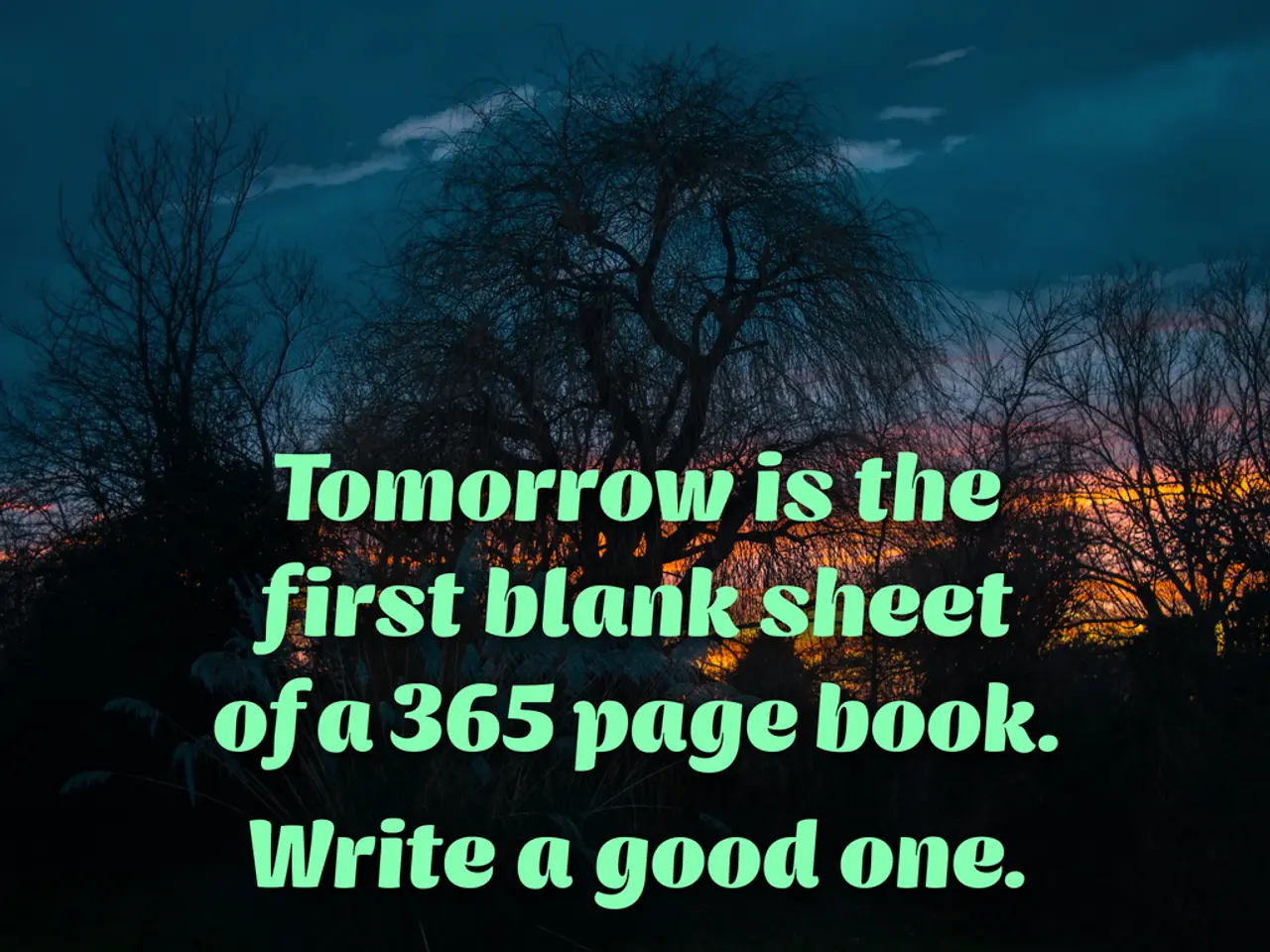Quick Strategies for Overcoming Writer's Block in Screenwriting Instantaneously
In the world of screenwriting, creative blocks and stagnation can often derail even the most dedicated writers. However, with the right strategies and techniques, it's possible to effectively overcome these obstacles and maintain momentum.
Firstly, it's essential to approach writer's block as a common, temporary phase without self-judgment. This mindset helps reduce mental pressure and allows creativity to reset. Establishing a daily writing routine, even if it's just 20–30 minutes or a small word count, can train your brain into regular creative flow, making discipline more reliable than waiting for motivation.
Techniques like freewriting, where you write continuously without editing for a few minutes, can bypass your inner critic and unlock subconscious ideas. Embrace imperfection by allowing yourself to write poorly or incomplete drafts; this "write through it" approach keeps ideas moving forward and can break the block.
Incorporating external creative prompts or exercises can also refresh your perspective and keep the process engaging. Tools like AI writing assistants, such as Sudowrite, can generate dialogue, suggest scenes, assist with pacing and structure, and provide brainstorming help, streamlining repetitive tasks and enhancing creativity.
Becoming part of a creative community offers feedback, accountability, and motivation. This support is crucial for persisting through rewrites and rejection, which are essential for sustained screenwriting productivity. Studying produced scripts, using script templates, and continuously refining your craft are also important for long-term momentum and success.
Feedback, although often uncomfortable, can transform your script and your mindset. Pausing before reacting to feedback, focusing on input from trusted sources, and using revision checklists can simplify the feedback process. Feedback from peers exposes blind spots and affirms your strengths, giving you clear direction for the next round of edits.
Regular breaks are vital for maintaining focus and preventing burnout. Micro-breaks - five minutes away from the screen every hour - refresh perspective without losing momentum. Physical breaks like walking or stretching also shake off creative fatigue.
Tracking small wins keeps you excited and moving forward, even in tough phases. Log every finished scene, revised page, or "aha" moment to create a visible streak of success. Save positive feedback, contest scores, or kind words from peers to build confidence and counter self-doubt.
For writers dealing with sensory overload or neurodivergence (ADHD, Autism), short, planned time outs in a calming environment are beneficial. Rituals can reduce overwhelm, minimize distractions, and lower anxiety for neurodivergent writers. A start cue, blocked out time in the calendar, and a location-based system can help establish writing routines.
In conclusion, to effectively overcome creative blocks and sustain momentum in screenwriting, it's crucial to embrace imperfection, incorporate external creative prompts, become part of a creative community, manage feedback effectively, take regular breaks, track small wins, and establish personalised writing rituals. With these strategies, you can protect your craft from burnout and creative collapse, and maintain focus and productivity.
- In the realm of personal growth and self-development, applying the "write through it" approach when facing writer's block can help unlock subconscious ideas, contributing to better productivity.
- In education-and-self-development, it's advantageous to utilize AI writing assistants, such as Sudowrite, for brainstorming help, structure assistance, and pacing improvement, thereby enhancing creativity.
- To maintain productivity and prioritize personal-growth, establishing a lifestyle that includes regular breaks, engaging in creative community, and tracking small wins can help reduce burnout and keep focus.




